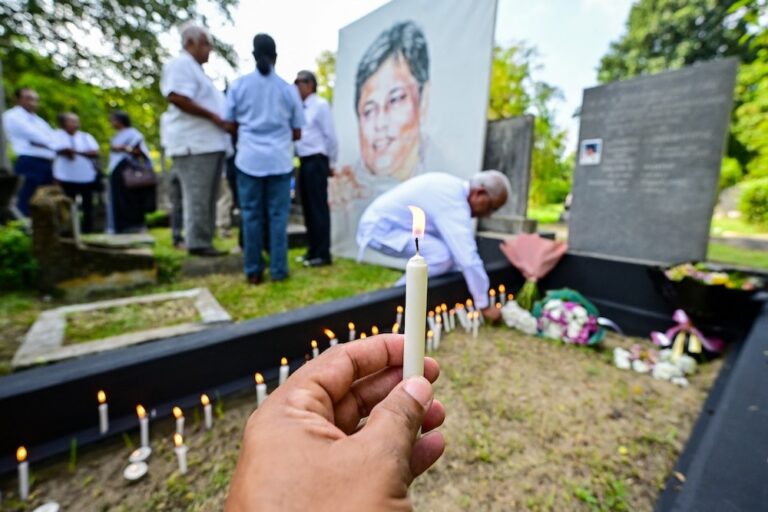(RSF/IFEX) – Reporters Without Borders deplores the latest cases of government censorship of international and local news media. In the past few days, the BBC World Service has been jammed by the state-owned Sri Lanka Broadcasting Cooperation (SLBC) and one of the country’s most outspoken newspapers, the “Sunday Leader”, has been forbidden to refer to […]
(RSF/IFEX) – Reporters Without Borders deplores the latest cases of government censorship of international and local news media. In the past few days, the BBC World Service has been jammed by the state-owned Sri Lanka Broadcasting Cooperation (SLBC) and one of the country’s most outspoken newspapers, the “Sunday Leader”, has been forbidden to refer to the president’s brother.
“We are worried by the increase in direct and indirect censorship in Sri Lanka,” Reporters Without Borders said. “Coming after a broadcast media bill reintroducing news censorship, the selective blocking of BBC and ‘Sunday Leader’ reports is disturbing. The authorities must accept the free flow of news even when it contradicts what officials are saying and irritates certain politicians.”
Reporters Without Borders condemns the censorship of parts of the BBC’s Sinhala service on 10 December and 27 November 2008. On 10 December, the authorities jammed a report about protests by politicians in the Indian state of Tamil Nadu who objected to being called “jokers” by the Sri Lankan army chief.
On 27 November, reports on a speech by the leader of the Tamil Tiger rebels and a press conference by representatives of the Defence Watch ( http://www.defencewatch.org ) website were rendered inaudible by the SLBC, which is contractually obliged to retransmit the BBC’s Tamil and Sinhala programmes every day.
The SLBC has, since August, been broadcasting a programme immediately after the BBC programming to give the official Sri Lankan government take on what the BBC’s journalists have just reported.
“We think it is important for the BBC to remind the Sri Lankan authorities of the broadcast contract between them,” Reporters Without Borders said. “These cases of censorship are a deliberate violation of the commercial rules.”
The defence ministry website ( http:///www.defence.lk ) has meanwhile been attacking the BBC World Service with increasing virulence. The BBC Sinhala service’s reports were described as “diabolical lies” in a report posted on 11 December. The BBC’s journalists are accused of being accomplices to Tamil Tigers propaganda when they refer to the fate of civilians in war zones.
On 5 December, a judge ordered Leader Publications, the publisher of the “Sunday Leader”, not to print during two weeks any report whatsoever about the president’s brother, defence secretary Gotabhaya Rajapaksa, who personally went to the court to accuse the press group of publishing “slanderous” reports about him. He is demanding 1 billion rupees (approx. 7 million euros) in damages.


